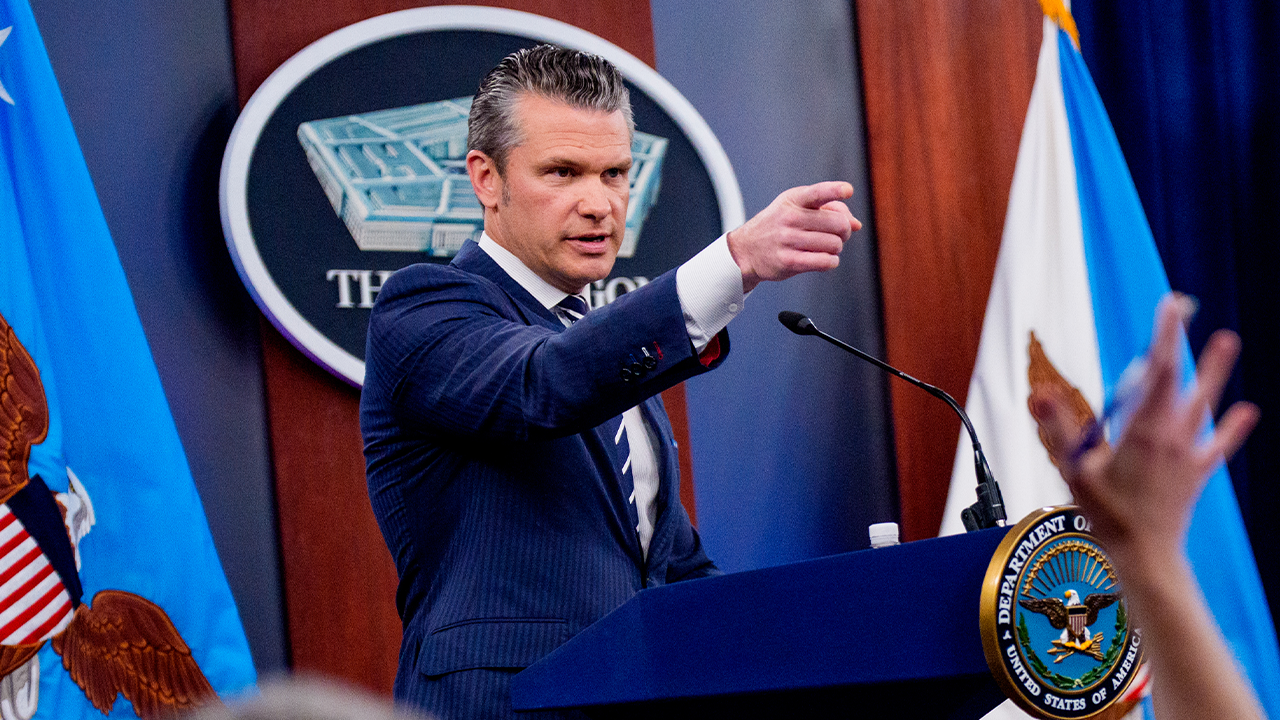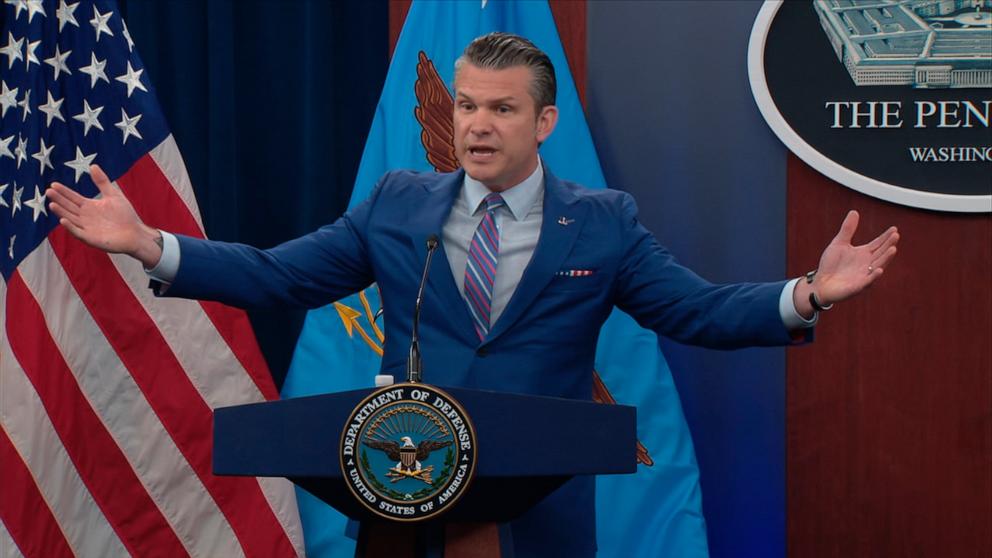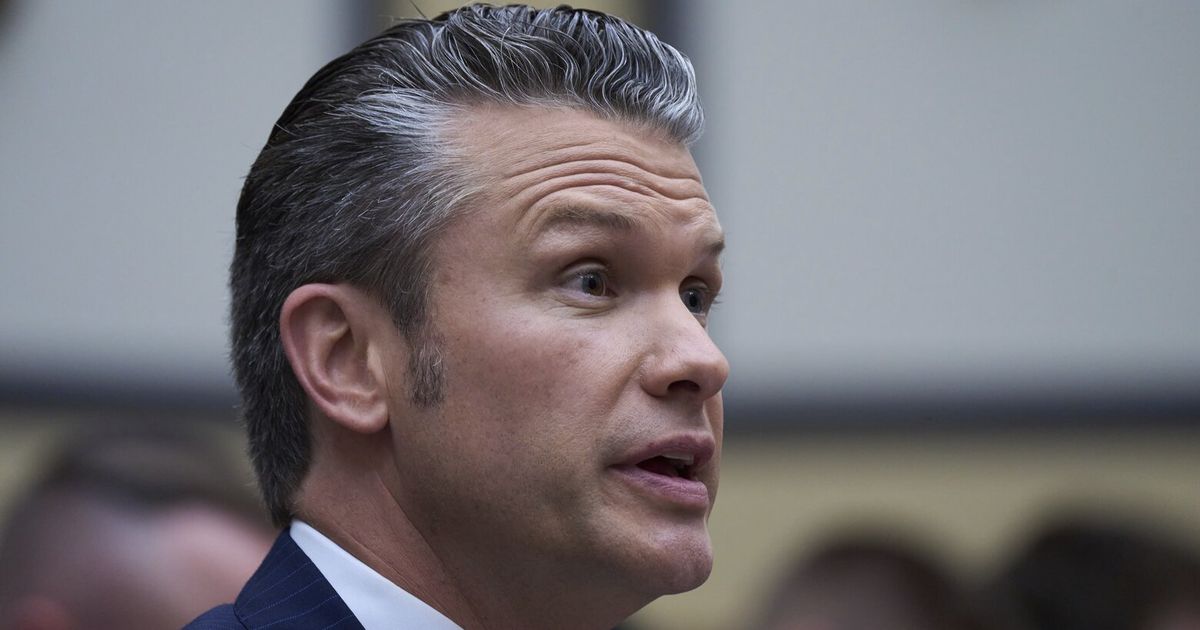Hegseth Dod Workforce Doge Email Compliance
A rather important shift is taking place for the civilian employees working within the Department of Defense, a change that touches on how they share their weekly efforts. This new approach, which is more or less about making sure everyone is on the same page regarding what they get done, marks a pretty significant move from earlier ways of doing things. It seems to be part of a bigger push for openness and getting things done efficiently within the government's defense operations, which is actually quite a big deal for a lot of people.
This whole situation centers around a specific email instruction that asks the DoD workforce to report their accomplishments. It’s a directive that comes with the backing of Secretary of Defense Pete Hegseth, and it involves something called DOGE, which is Elon Musk’s Department of Government Efficiency. The story behind this instruction, and how it came to be a required task, has a few interesting turns, as a matter of fact, especially for those who work in these government roles.
Initially, there was a bit of confusion, with early guidance suggesting employees might just ignore the request. But now, it’s quite clear that compliance is expected, and this includes sending in details about what was achieved each week. This measure, you know, aims to keep things accountable while also trying to make sure the department operates as smoothly as it possibly can. It’s a move that, in a way, is meant to help everyone see the value in their work and how it fits into the bigger picture.
- Black Mouth Cur
- Monterrey Mexican Restaurant
- Sixt Rent A Car
- Black Money Love
- Delta Dental Of Washington
Table of Contents
- Getting to Know Pete Hegseth - A Look at the Man
- Pete Hegseth - Quick Facts
- What is Happening with DoD Workforce Email Compliance?
- Hegseth's Directive on DOD Workforce Email Compliance
- Why the Change in DOD Workforce Email Compliance?
- The DOGE Email and its Impact on DOD Workforce
- How Does This Affect the DOD Workforce?
- Ensuring Hegseth's Vision for DOD Workforce Email Compliance
- What Comes Next for DoD Workforce Email Compliance?
Getting to Know Pete Hegseth - A Look at the Man
Pete Hegseth, born in 1980, has taken on a significant role as the 29th United States Secretary of Defense starting in 2025. Before stepping into this very important government position, he had a rather public career, which is interesting. He served as a television presenter, perhaps best known for his time as a co-host on a popular weekend news show from 2017 to 2024. During that period, he became quite recognized for expressing his conservative viewpoints, so you know, people had a good idea of where he stood on things.
His background also includes time as an officer in the Army National Guard, which, as a matter of fact, gives him a direct connection to the military he now helps to lead. After finishing college, he was commissioned as an infantry officer, which is a pretty serious commitment. This experience, you could say, provides him with a unique perspective on the challenges and needs of the defense community. It’s not every day someone goes from television to such a high-ranking government post, so his path is, in a way, quite distinctive.
When he was put forward for the Secretary of Defense role, he spoke during a confirmation hearing. This was, you know, a chance for him to lay out his ideas and for others to ask him questions. He has, apparently, developed a pretty close working connection with the former president, who had, in fact, thought about him for a government job in an earlier administration. This rapport, in some respects, seems to have played a part in his current appointment. He has also, quite openly, pushed for the release of service members who faced accusations related to war crimes, showing a clear interest in the welfare of military personnel.
- Cast Of Dirty Dancing
- Rhian Butlin Unnecessary Hysterectomy
- Syracuse Airport
- Mechanic Resurrection Cast
- Memphis International Airport
Pete Hegseth - Quick Facts
| Detail | Information |
|---|---|
| Full Name | Peter Brian Hegseth |
| Born | June 6, 1980 |
| Current Role | 29th United States Secretary of Defense (since 2025) |
| Previous Public Role | Co-host of Fox & Friends Weekend (2017-2024) |
| Military Service | Former Army National Guard Officer (Infantry) |
| Sworn In By | Vice President JD Vance (Saturday morning) |
What is Happening with DoD Workforce Email Compliance?
There's been a rather interesting development concerning how the Department of Defense civilian workforce communicates their weekly activities. Secretary of Defense Pete Hegseth has, in fact, given a clear instruction to these employees: they need to follow an email directive that comes from Elon Musk’s Department of Government Efficiency, or DOGE. This particular directive asks everyone to list five things they got done, which is a bit of a specific request, you know.
This instruction marks a notable change from what was said before. Originally, some guidance had told employees to simply disregard this request, which, as you can imagine, caused a little bit of back and forth. However, after a period of review, Secretary Hegseth decided that full cooperation was needed. This means that what might have seemed like an optional email is now, apparently, a required part of their work routine, which is quite a shift for many.
General Dan Caine, who is the chairman of the joint chiefs of staff, also held a news conference with Secretary Hegseth. They spoke about a leaked intelligence report that suggested U.S. actions against Iran. While this is a different topic, it shows that the leadership is very much involved in public communication and setting the record straight, even on different issues. The focus for the workforce, though, remains on this new email requirement, which is, in a way, a direct ask for their weekly efforts.
Hegseth's Directive on DOD Workforce Email Compliance
Secretary Hegseth has made it pretty clear that the Department of Defense civilian workers must respond to DOGE’s productivity email. This message, which is quite specific, asks for five bullet points that detail the work accomplishments from the prior week. It also includes a request for one idea on how the department might improve its efficiency or, you know, find ways to get rid of waste. This is, in some respects, a direct call for input from the ground up.
The directive was formalized in a memo dated February 28th, where Secretary Hegseth told all DoD civilian employees to list these five things they accomplished over the week. They are then supposed to email this list to the Office of the Secretary of Defense, making sure to copy their supervisors. So, it’s not just a general request; it’s a structured reporting system that, you know, has a clear path for submission.
This new requirement means that the "five things I did this week" email has now become a regular, weekly task for defense civilians. It’s a continuous reporting cycle, which is a bit different from how things might have been handled before. This regular check-in is, apparently, part of a larger push to keep track of what everyone is doing and how things are progressing, which is a rather active way to manage performance.
Why the Change in DOD Workforce Email Compliance?
The path to this current directive for the DoD civilian workforce wasn't a straight line, which is, you know, pretty common with big organizational changes. Initially, Pentagon officials had actually told Department of Defense employees not to respond to a February 22nd email titled "what did you do last week?" This email was, in fact, spearheaded by DOGE, so there was a clear pause in action from the start.
However, Secretary Hegseth issued an initial "pause" last week, which delayed civilian participation while officials at the Pentagon looked over the whole idea. This review period was, in a way, a chance to figure out if this reporting initiative was the right fit. After that careful look, Hegseth decided to enforce full cooperation. This shows a shift in thinking, where what was once put on hold is now, apparently, a firm requirement.
The reason given for this measure is that it highlights the department’s dedication to keeping things accountable while also trying to balance the need for things to run smoothly and effectively. It’s about making sure that everyone’s contributions are recognized and that operations are, in some respects, as streamlined as they can be. This balance between accountability and efficiency is, you know, often a key goal for large organizations.
The DOGE Email and its Impact on DOD Workforce
The email itself, coming from OPM/DOGE, is being called a new "accomplishments" demand email. It was expected to be sent out on a Monday, March 3rd, and its main purpose is to ask employees to list their achievements. This means that the email isn't just a one-time thing; it’s meant to kick off a regular reporting cycle. A government source, as a matter of fact, shared a copy of this email, giving a clearer picture of its contents.
Unlike the first set of messages, this email makes it clear that employees are now expected to take part in this kind of reporting every single week. This weekly expectation is, in some respects, a big change for many, as it adds a new routine to their work schedule. It’s a continuous request for updates on what they’ve been doing, which is, you know, a pretty direct way to keep tabs on productivity.
Secretary Hegseth’s announcement about this came as federal workers from different agencies had already gotten a second round of the OPM email on February 22nd. So, it wasn't completely out of the blue for some. This email from DOGE, which is Elon Musk's Department of Government Efficiency, is really the centerpiece of this new compliance effort. It’s the tool through which the information about accomplishments is being gathered, and it’s, apparently, here to stay for the DoD workforce.
How Does This Affect the DOD Workforce?
For the civilian workforce at the Department of Defense, this new email directive means a direct change to their weekly routine. They now have a specific task to complete each week: detailing five things they got done. This adds a layer of reporting that wasn't there before, which, you know, can take a little bit of time and effort to get used to. It's about structuring their thoughts on their work in a new way.
The directive is also being described as a "pulse check" for federal employees. This phrase suggests that the goal is to get a regular sense of what’s happening on the ground, to feel the rhythm of productivity across the department. It’s a way for leadership to stay connected with the daily output of their teams, which is, in a way, a pretty hands-on approach to management. This regular check-in is, apparently, meant to provide ongoing insights.
The change also means that the initial instruction to ignore the request is no longer valid. Employees who might have paused their response are now expected to fully participate. This shift from a "pause" to "full compliance" means that the workforce has to adapt to the new requirement, which, you know, often involves a bit of adjustment for everyone involved. It’s a clear signal that this is a serious and ongoing expectation.
Ensuring Hegseth's Vision for DOD Workforce Email Compliance
Secretary Hegseth’s direction on this email compliance is, in some respects, a clear statement about how he sees the Department of Defense operating. The measure is meant to highlight the department’s dedication to keeping things accountable, which is, you know, a pretty fundamental aspect of any large organization. It’s about making sure that there’s a clear record of what’s being accomplished and by whom.
At the same time, the directive also aims to balance this need for accountability with the goal of operational efficiency. This means that while they want to know what’s getting done, they also want to make sure the process of reporting isn’t slowing things down or creating unnecessary burdens. It’s a delicate balance, as a matter of fact, to get the right amount of oversight without hindering actual work.
The initial pause and subsequent review of the initiative by Pentagon officials show that this wasn’t a decision made lightly. There was, apparently, a period of assessment to consider the implications and make sure the approach was sound. Now that Hegseth is enforcing full compliance, it suggests that the review found the initiative to be worthwhile and something that, in a way, fits into the broader goals for the department.
What Comes Next for DoD Workforce Email Compliance?
Looking ahead, this new requirement for the DoD civilian workforce to report their weekly accomplishments seems to be part of a bigger plan. The email directive is, in some respects, a component of a broader effort to make the department's civilian workforce smaller. This suggests that the push for efficiency and accountability through these weekly reports might also be connected to wider organizational changes, which is, you know, something to keep an eye on.
Officials who are leading the Pentagon’s chief digital and AI office are, as a matter of fact, looking into possible exceptions to a hiring freeze that Secretary Hegseth recently put in place. This hiring freeze is also part of that larger effort to reduce the size of the civilian workforce. So, while the email compliance is about reporting current work, there are also, apparently, ongoing discussions about the overall structure and staffing levels within the department.
The internal email that shared this information about exploring hiring freeze exemptions gives a little peek behind the curtain. It shows that even as new reporting requirements are put into place, there are other, related conversations happening about how the department will operate in the future. This indicates that the changes related to the DoD workforce, and its email compliance, are part of a very active and perhaps still evolving strategy for the defense establishment.

Hegseth holds press conference following US strikes on Iran | Fox News

Israel-Iran live updates: Hegseth defends Iran bombing, says media

Live: The Latest: Hegseth praises US attack on Iran but offers few